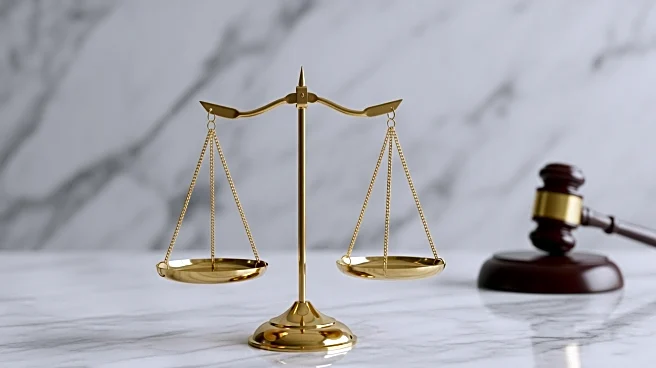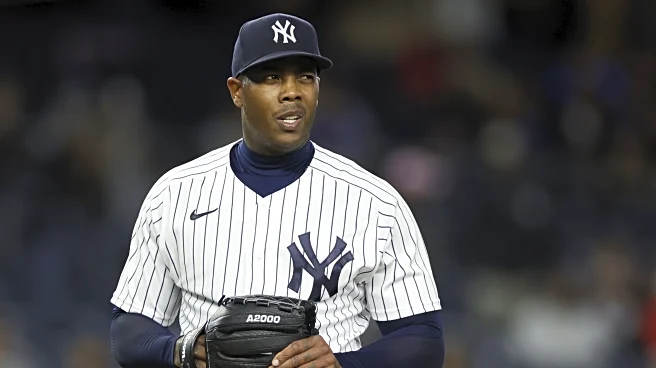What's Happening?
Former French President Nicolas Sarkozy, who was sentenced to five years in prison for criminal conspiracy related to financing his 2007 campaign with Libyan funds, may be released from prison on Monday.
Sarkozy, who served as president from 2007 to 2012, was incarcerated on October 21 following his conviction. His legal team has filed a request for early release, citing Article 144 of France's criminal code, which generally favors release pending appeal unless the individual poses a risk of fleeing or influencing witnesses. Sarkozy maintains his innocence, claiming the charges are part of a plot by individuals linked to the Libyan government. The Paris court is set to decide on his release, which could see him placed under judicial supervision.
Why It's Important?
The potential early release of Nicolas Sarkozy highlights significant legal and political implications. Sarkozy's case underscores the challenges of prosecuting high-profile political figures and the complexities involved in international campaign financing. His conviction and subsequent appeal could influence public perception of political accountability in France and potentially impact Sarkozy's political legacy. The case also draws attention to the broader issue of corruption and influence peddling within political systems, which can affect public trust in governance. If released, Sarkozy's situation may prompt discussions on judicial processes and the balance between legal consequences and political influence.
What's Next?
If the court grants Sarkozy's request for early release, he will be placed under judicial supervision, potentially allowing him to leave La Santé prison in Paris within hours. Additionally, Sarkozy faces other legal proceedings, including a pending ruling by France's highest court on November 26 regarding illegal campaign financing for his 2012 reelection bid. Furthermore, Sarkozy is involved in another investigation related to the Libya financing case, with preliminary charges filed against him for allegedly attempting to pressure a witness. These ongoing legal challenges could continue to shape Sarkozy's future and influence political discourse in France.
Beyond the Headlines
Sarkozy's legal battles may have broader implications for international relations, particularly concerning France's past interactions with Libya. The case highlights the ethical considerations of campaign financing and the potential for foreign influence in domestic politics. It also raises questions about the accountability of political leaders and the mechanisms in place to prevent corruption. As Sarkozy navigates these legal challenges, the situation may prompt discussions on reforming political financing laws and ensuring transparency in political campaigns.











